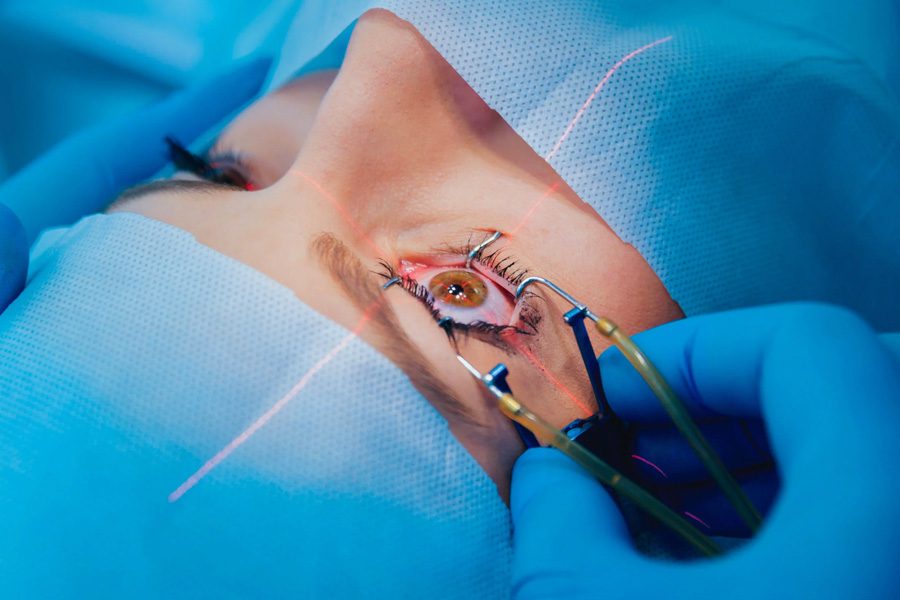Imagine driving down a busy street, but your windshield is fogged up, making everything blurry and hard to see. Now, think of your eyes experiencing this daily—this is what living with cataracts can feel like. Cataracts are a common issue, especially among the elderly, but they don’t have to impede your vision forever. Understanding cataract surgery and what it entails can help you make an informed decision about your eye health. This article will guide you through everything you need to know about cataract surgery, ensuring you are well-prepared before making this significant decision.
What is Cataract Surgery?
Cataract surgery is a procedure designed to remove the clouded lens in one’s eye and replace it with a clear artificial lens, known as an intraocular lens (IOL). Most often, this kind of surgery is done in an outpatient setting; the patient is allowed to go home after spending the day in the hospital. The actual surgical procedure takes less than an hour and is very successful.
Signs You Might Need Cataract Surgery
Recognizing the symptoms of cataracts is crucial. Here are some signs that you might need to consider cataract surgery:
1. Blurry Vision:
Foggy objects with a lack of focus
2. Glare and Halos:
Light sensitivity, specifically halos around lights
3. Double Vision:
Seeing double images
4. Fading Colors:
Less vibrant colors
5. Night Vision Difficulty:
Poor vision and challenges at night
If you experience these symptoms, it’s essential to consult an eye specialist to evaluate the extent of your cataracts and discuss potential treatment options.
Advantages of Cataract Surgery
Cataract surgery offers numerous benefits, significantly improving your quality of life. Here’s how:
Improved Vision:
Most people experience a drastic improvement in their vision.
More Colorful:
Colors appear more vivid and true to life.
Better Quality of Life:
Clearer vision can make everyday tasks easier and more enjoyable.
Safety:
Reduces the risk of falls and accidents caused by poor vision.
Cost-effective:
Over time, the surgery can reduce the need for expensive vision aids and treatments.
Imagine being able to read your favorite books again, drive without difficulty, and see your loved ones clearly. These are just a few of the life-changing benefits cataract surgery can provide.
Risks and Considerations
While cataract surgery is a relatively safe procedure, it does involve possible risks, although they are quite rare. These can include:
Infection:
As with any invasive operation, there is a slight chance of infection after the surgery.
Inflammation:
Bleeding and redness may appear but can usually be easily controlled with medication.
Changes in Vision:
Some patients can experience changes in vision during their healing process.
Secondary Cataract:
Sometimes, the lens capsule that holds the IOL can become cloudy and require a quick, painless laser treatment to restore clarity.
Recovery typically involves avoiding strenuous activities and following your doctor’s advice on medication and eye protection. Most patients see significant improvement within a few days to weeks.
Choosing the Right Surgeon
Selecting a skilled and experienced surgeon is crucial for a successful outcome. Here are some tips:
1. Research Credentials:
Ensure the surgeon is board-certified and has extensive experience in cataract surgery.
2. Read Reviews:
Look for patient testimonials and reviews to gauge satisfaction levels.
3. Consultations:
Schedule consultations with multiple surgeons to discuss their approach and get a feel for their expertise.
4. Ask Questions:
Don’t hesitate to ask about their success rates, complication rates, and any other concerns you have.
Choosing the right Ophthalmologist can make a significant difference in your overall experience and satisfaction with the surgery.
Cost and Insurance
Understanding the cost of cataract surgery and your insurance coverage is essential. The cost can vary based on factors such as the type of IOL used and the surgeon’s fees. Here’s what you should consider:
1. Insurance Coverage:
Many insurance plans, including Medicare, cover a significant portion of cataract surgery costs. Check with your provider to understand your benefits.
2. Out-of-Pocket Costs:
Be prepared for any out-of-pocket expenses, including copayments and deductibles.
3. Financing Options:
Some clinics offer financing plans to help manage costs.
Being financially prepared ensures that you can focus on your recovery without the stress of unexpected expenses.
Patient Stories
Hearing from others who have undergone cataract surgery can be reassuring and informative. For example, Maria, a 65-year-old retiree, shared her experience: “I was hesitant at first, but my surgeon explained everything thoroughly. The surgery was quick, and the improvement in my vision was almost immediate. I can now enjoy my hobbies without struggling to see.”
Conclusion
Cataract surgery can significantly enhance your quality of life, offering clearer vision and greater independence. By understanding the procedure, recognizing the signs, and choosing the right surgeon, you can make an informed decision that aligns with your health needs. Remember, this information can benefit not only you but also those around you who may be considering cataract surgery. Make the decision with confidence, knowing that the path to clearer vision is within reach.
For more detailed information on Cataract Surgery, visit Now Serving. If you’re also interested in learning about other eye conditions like diabetic retinopathy, check out this informative blog.
Take the first step towards better vision today and explore your options with trusted professionals who prioritize your eye health.






















Add Comment